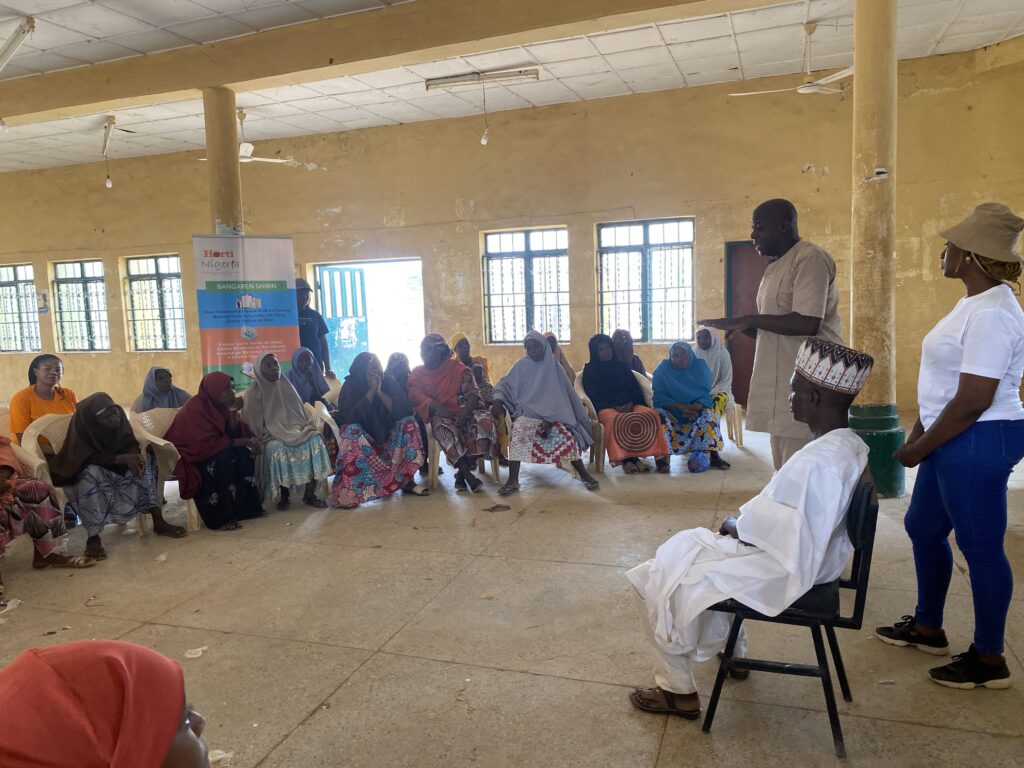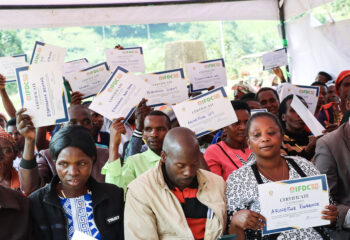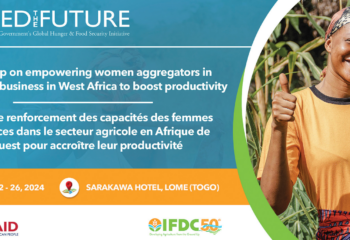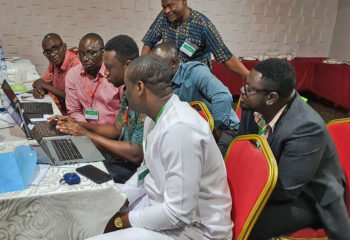
HortiNigeria is a program that aims to increase the productivity and income of 60,000 farmers, 50% of whom are youth and 40% women. This means the program would have reached 30,000 youth and 24,000 women at the end of 2025. These numbers could be considered high, (particularly the target for women) because of the locations where the program works in: Kaduna and Kano states. Social norms in the northern states of Nigeria limit women and young people in agriculture from ownership and access to land resources, time use, decision-making power, and mobility.
Through the women, female and male youths can be encouraged to participate, thus fostering sustainability.
However, the burden of feeding families and improving the standard of living within households on men can be reduced if more family members are able to contribute. To achieve this change, cultural norms and other barriers must be challenged by men and women – all members of the community. The narrative must be tailored and presented well to the right people. This is where “community entry” can play a role. Community entry is the process, principles and techniques of community mobilization and participation. It involves recognizing the community, its leadership, and the individual people and adopting the most appropriate strategy for meeting, interacting, and working with them.
Since the inception of HortiNigeria, the program has leveraged the expertise of one of its consortium partners: East-West Seed Knowledge Transfer (EWS-KT) Foundation. EWS-KT has a cadre of Technical Field Officers (TFOs) deployed within targeted communities of the program’s agribusiness clusters. The TFOs sensitize, mobilize, and train farmers on the good agricultural practices and eco-efficient technologies required to boost their productivity and income. One of those TFOs is Tabitha Ufedekiama, a young graduate from the prestigious Ahmadu Bello University, who is working in Minjibir, Kano State.
In preparation for the 2023 rainy season, Tabitha started mobilizing farmers in the community but was posed with the challenge of how to reach women farmers. To tackle this issue, she decided to work with the HortiNigeria Youth and Gender Specialist to employ a new strategy to ensure more women could be reached. The community entry strategy was tweaked to include key women leaders who have influence in the community, husbands, and community leaders. More than 30 women attended the event and have shown interest in participating in HortiNigeria activities.
Hajiya Halima, a woman leader in the community, says, “If we cannot get the women to participate from the beginning, the program’s impact will be short-lived. Through the women, female and male youths can be encouraged to participate, thus fostering sustainability.’’ There is no doubt that farming within this community is tough for both men and women because of the limited rainfall and salty water bodies; however, Hajiya explained that if she could do it, others, particularly younger women in the community, can too.




